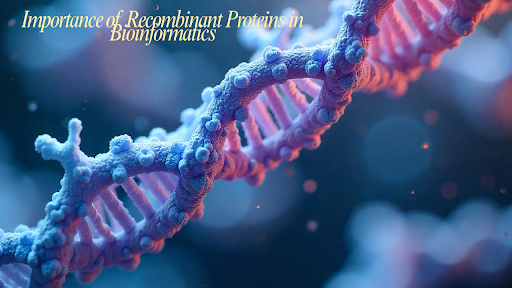24 August 2025 | Sunday | News

When it comes to the field of computational biology, rProteins and bioinformatics fit together almost like a lock and key.
Recombinant protein technology can be considered as a bridge between experimental biology and computational modeling since it allows scientists to create specific and functional proteins in high amounts. This will enable the detailed study of the structure, interactions, and functions of polypeptides that are vital in the development of genomics, proteomics, and drugs.
Recombinant Proteins Function in Computational Biology
Computational biology makes use of information of diverse biological molecules in modeling complex biological systems.
The inputs of high-quality recombinant proteins and their applications are helpful in supporting the discovery of the experimental information that is required to test computational predictions as well as optimize bioinformatics algorithms.
|
S.No |
Application Area |
Description |
Example Use Case |
|
01. |
Structural Biology |
Solving the 3D structures of proteins |
Refining molecular docking simulations |
|
02. |
Drug Development |
Screening potential drug candidates |
Virtual screening combined with protein assays |
|
03. |
Systems Biology |
Modeling cellular networks and pathways |
Understanding disease mechanisms |
|
04. |
Vaccine Design |
Developing antigen-based immunogenic responses |
Computational epitope mapping |
|
05. |
Enzyme Engineering |
Designing enzymes for industrial or therapeutic purposes |
Optimizing enzyme stability |
The Importance of High-Quality Recombinant Proteins
It cannot be overestimated how critical the application of high-quality rProteins is. Minor differences in protein purity, protein folding, and post-translational modifications can have a devastating impact on the reproducibility and relevance of computational biology experiments.
Good quality polypeptides will guarantee:
The Pros of Using Recombinant Proteins in Computational Biology
Specificity: Proteins can be produced in known sequence (and variants and mutants for specific purposes) by recombinant techniques.
Scalability: Can be efficiently employed in large-scale processes required in computational assays.
Flexibility: Can accommodate various experimental methods, which produce reliable data to be analyzed.
Cost-Effectiveness: It saves on cost as opposed to the purification of native proteins of complex biological samples.
Enables Multi-Disciplinary Investigations: As part of bringing experimental biology and computation, machine learning into harmony.
Conclusion
Recombinant proteins represent an essential element of computational biology because of their capacity to give exact, replicable, and scalable samples of proteins, making it possible to advance the knowledge about biological systems through bioinformatics.
High-quality recombinant proteins provide accuracy and reliability of information, and thus they are essential in the analysis of protein structures, drug discovery, and more.
With the synergistic combination of rProtein technology and bioinformatics, it seems that the future holds the amazing potential of exciting discoveries in modern research.
© 2026 Biopharma Boardroom. All Rights Reserved.